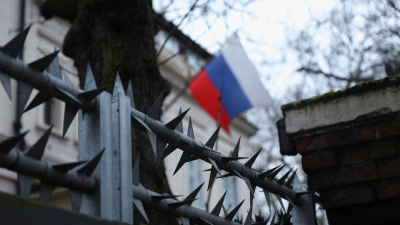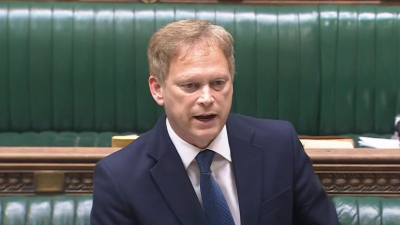Revitalizing the Pitch: Unraveling the Resurgence of the European Super League and Its Impact on Premier League Dynamics
In a surprising turn of events, A22 Sports Management, the driving force behind the controversial European Super League, has rekindled its aspirations, asserting that it has effectively addressed the widespread criticisms that engulfed its original 2021 proposal. Adding fuel to the fire, the European Court of Justice recently ruled that FIFA and UEFA had overstepped their bounds in attempting to thwart the league, marking a pivotal moment that reignited hopes for its realization.
The European Court's decision, handed down on Thursday, declared that FIFA and UEFA had violated European competition law by impeding the initial plans in 2021. Furthermore, the judges contended that both regulatory bodies had "abused their dominant position in football" by menacingly sanctioning teams expressing interest in the league. A22 Sports Management has seized this legal vindication to relaunch its bid, emphasizing the purported rectifications made in response to prior criticisms.
As the spotlight returns to the proposal, Sky News delves into the intricacies of the revamped competition. The fundamental question remains: Why is a super league being proposed? A22 Sports initiated the bid in 2021, envisioning a 12-team European Super League that included the Premier League's formidable "big six" – Manchester United, Manchester City, Liverpool, Tottenham, Arsenal, and Chelsea. However, the proposal triggered vehement opposition from UEFA, FIFA, domestic teams, and fans alike, who argued that it threatened to prioritize financial gains for the wealthiest clubs, potentially jeopardizing grassroots and lower league football.
Unlike established European competitions like the Champions League, which necessitate clubs to qualify annually through domestic league standings, the original ESL plan guaranteed perpetual participation and associated revenue for Europe's major clubs. These elite teams would have engaged in more fixtures against fellow European powerhouses, no longer obligated to share TV revenue with smaller clubs participating in existing competitions.
A22 Sports now asserts that its revamped plans liberate football from what it labels as the "monopoly of UEFA." Characterized as "more open" and "merit-based," the new proposal promises opportunities for progression, relegation, and free access to live matches. The company contends that both the original and adjusted proposals respond to the prevalence of "inconsequential matches" in current domestic and European leagues, asserting that these matches fail to captivate fan interest based on viewing figures.
The new ESL plan encompasses both men's and women's competitions, ushering in a potentially transformative era for football. As discussions surrounding the league's revival gain momentum, the landscape of European football teeters on the precipice of change, leaving fans, clubs, and regulatory bodies grappling with the implications of this audacious endeavor.
Navigating the Labyrinth: A Deep Dive into the New European Super League Format and its Impact on British Clubs
As the resurgent European Super League proposal gains momentum, A22 Sports Management unveils an intricate structure for the men's competition, promising a dynamic and competitive landscape. Divided into three leagues — blue, gold, and star — the hierarchy ranges from the blue league at the bottom to the pinnacle represented by the star league. With a total of 64 clubs, the blue league comprises 32 teams, while the star and gold leagues house 16 each, further divided into groups of eight.
The comprehensive competition unfolds in two stages: the league and knockout phases. Spanning from September to April, the league stage involves each team participating in 14 matches, evenly split between home and away fixtures. A22 Sports emphasizes the significance of "every match counting" and asserts that the schedule avoids clashes with domestic league commitments. Following the league stage, the knockout rounds beckon, featuring two-legged quarter and semi-finals, culminating in a final played on neutral ground. The victors of each league emerge as champions.
Addressing prior criticisms of lack of competitiveness and progression, A22 Sports introduces a relegation system for the men's competition. The bottom two teams in both the star and gold leagues face relegation, replaced by the top two teams from the league below. Additionally, 20 of the 32 clubs in the blue league exit the competition, making room for standout performers from their domestic leagues. A22 Sports asserts that matches will be accessible for free on a single platform, generating revenue through advertising.
The women's competition mirrors the men's format with slight adaptations. Comprising two leagues — star and gold — housing a total of 32 clubs, the structure follows a similar group-based league stage, leading to two-legged quarter and semi-finals. A22 Sports pledges to double the representation of European women's football clubs, aiming to align with the current stage of women's football development. Similar to the men's competition, a relegation system is in place, ensuring mobility within and across leagues.
Amidst these developments, the burning question remains: What do these latest advancements mean for British clubs? As the European football landscape undergoes a potential transformation, British clubs find themselves at the crossroads, grappling with the implications of this ambitious venture.
Government Response and Legal Implications: The UK Stance on the Resurrected European Super League
In the wake of the revived European Super League (ESL) proposal and the European Court of Justice's groundbreaking ruling, the UK government has taken decisive action to safeguard against the potential disruption posed by breakaway leagues. In response to the initial plans, the government established an independent regulatory body with the explicit purpose of preventing clubs from participating in ventures like the ESL.
Following the recent court ruling and the subsequent revelation of A22 Sports Management's revamped plans, the Department for Digital, Culture, Media, and Sport announced its commitment to expedite legislation aimed at fortifying these regulatory measures. The move underscores the government's determination to prevent any breakaway league involvements by its clubs.
Complicating matters further is the post-Brexit landscape, as the UK is no longer a member of the European Union. This shift has profound implications, particularly in terms of legal recourse. British clubs, in the event of disagreements or disputes, would no longer have the option to appeal to the European Court of Justice, stripping away a traditional avenue for legal challenges.
Even if the new ESL gains traction and proceeds with its plans, British clubs, including Arsenal, Chelsea, Manchester City, Manchester United, Tottenham Hotspur, and Liverpool, may find themselves on the sidelines. The inability to appeal to the European Court of Justice, coupled with the stringent domestic regulatory measures, could effectively bar these Premier League powerhouses from participating in the proposed super league.
Interestingly, not all clubs are aligning with the renewed ESL enthusiasm. Notable names like Manchester United, Atletico Madrid, and Bayern Munich, the latter having been part of the original Super League plan, have expressed support for UEFA in the aftermath of the recent developments. This schism within the football community highlights the complexities and divergent perspectives surrounding the controversial league proposal.
As the saga of the European Super League takes center stage once again, the UK government's robust response and commitment to legislative measures signal a determined stand against the potential disruption posed by breakaway leagues. The establishment of an independent regulatory body, coupled with swift legislative action in light of the recent court ruling, underscore the government's resolve to prevent British clubs from participating in ventures like the ESL.
The post-Brexit landscape further adds layers of complexity, as British clubs are deprived of the traditional avenue of appealing to the European Court of Justice. This legal shift, combined with domestic regulatory measures, presents a formidable barrier that could bar renowned Premier League clubs from engaging in the proposed super league.
While A22 Sports Management strives to breathe new life into the ESL with its revamped plans, the discord within the football community remains palpable. Noteworthy clubs, including Manchester United, Atletico Madrid, and Bayern Munich, have chosen to align with UEFA, expressing their allegiance amidst the ongoing developments.
As the legal, regulatory, and footballing landscapes continue to evolve, the future of the European Super League hangs in the balance. The coming chapters are likely to be shaped by the interplay of legislative maneuvers, football governance dynamics, and the reactions of key stakeholders, leaving the footballing world on the edge of its seat, eagerly awaiting the next twist in this intricate narrative.







